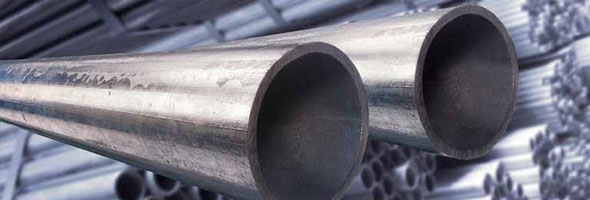Nickel 200 tubing is a highly versatile material known for its exceptional corrosion resistance, high thermal and electrical conductivity, and outstanding mechanical properties. This tubing is a popular choice across various industries, including chemical processing, marine applications, and power generation. In this guide, we’ll explore everything you need to know about Nickel 200 tubing, from its properties and applications to its advantages and maintenance tips.
What is Nickel 200?
Nickel 200 is a commercially pure nickel alloy with a minimum nickel content of 99.6%. It stands out for its excellent resistance to corrosive environments, making it ideal for demanding applications.
This material exhibits the following properties:
- Corrosion Resistance: High resistance to acids, alkalis, and neutral salt solutions.
- Thermal Conductivity: Excellent heat transfer capabilities.
- Mechanical Strength: High tensile and yield strength.
- Magnetic Properties: Slightly magnetic at room temperature.
- Weldability: Easy to fabricate and weld.
Applications of Nickel 200 Tubing
1. Chemical Processing
Nickel 200 tubing is commonly used in chemical industries due to its resistance to strong acids like hydrochloric and sulfuric acids. It is ideal for handling corrosive solutions and chemical reactions.
2. Marine Industry
In marine environments, Nickel 200 tubing performs exceptionally well. It resists corrosion caused by seawater, making it suitable for desalination plants, shipbuilding, and offshore structures.
3. Aerospace Applications
The material’s strength and ability to withstand extreme temperatures make it a reliable choice in aerospace components like fuel systems and heat exchangers.
4. Food and Beverage Processing
Nickel 200 tubing is used in food processing equipment because it is resistant to food acids and ensures no contamination during production.
5. Power Generation
Power plants use Nickel 200 tubing in heat exchangers and condensers due to its excellent thermal conductivity and durability.
Advantages of Nickel 200 Tubing
1. Corrosion Resistance
Nickel 200 offers exceptional resistance to various corrosive environments, including acids, alkalis, and saltwater.
2. High Durability
The tubing maintains its structural integrity even under extreme conditions, ensuring a long lifespan.
3. Excellent Conductivity
Its high thermal and electrical conductivity make it ideal for heat exchangers and electrical components.
4. Easy Fabrication
Nickel 200 tubing can be easily welded, cut, and formed, allowing for versatile applications and custom designs.
5. Sustainability
Nickel 200 is 100% recyclable, making it an eco-friendly choice for industries focused on sustainability.
Specifications and Standards
Nickel 200 tubing is available in various sizes and conforms to international standards such as ASTM B161 and ASME SB161. Key specifications include:
- Outer Diameter: Ranges from small to large diameters, depending on the application.
- Wall Thickness: Customizable for specific strength and weight requirements.
- Length: Supplied in fixed or custom lengths based on industrial needs.
Nickel 200 vs. Other Materials
Nickel 200 vs. Stainless Steel
- Nickel 200 offers better corrosion resistance in certain chemical environments compared to stainless steel.
- Stainless steel, however, is generally less expensive and more readily available.
Nickel 200 vs. Copper Alloys
- Nickel 200 excels in acidic environments, while copper alloys perform better in neutral or basic conditions.
- Copper is preferred for electrical conductivity, but Nickel 200 is superior in strength and heat resistance.
Maintenance of Nickel 200 Tubing
To ensure optimal performance, proper maintenance of Nickel 200 tubing is crucial. Follow these tips:
- Regular Cleaning: Prevent accumulation of corrosive substances by cleaning the tubing periodically.
- Inspection: Check for signs of wear, cracking, or damage to address issues early.
- Avoid Contamination: Prevent contact with incompatible materials or chemicals.
- Storage: Store in a dry environment to avoid moisture-induced oxidation.
Why Choose Nickel 200 Tubing?
Nickel 200 tubing combines reliability, strength, and resistance to challenging environments. Its versatility and adaptability make it a preferred choice for industries where performance and longevity are critical. Whether you’re working in chemical processing, aerospace, or food production, this material offers unmatched benefits.
Specifications and Standards
Nickel 200 tubing is available in various sizes and conforms to international standards such as ASTM B161 and ASME SB161. Key specifications include:
- Outer Diameter: Ranges from small to large diameters, depending on the application.
- Wall Thickness: Customizable for specific strength and weight requirements.
- Length: Supplied in fixed or custom lengths based on industrial needs.
Conclusion
Nickel 200 tubing is a high-performance solution for industries requiring durability, corrosion resistance, and excellent conductivity. Its ability to withstand harsh conditions while maintaining performance makes it a valuable material in numerous applications.
If you’re looking for a reliable tubing material, consider Nickel 200. Its exceptional properties and wide range of uses ensure it meets the needs of even the most demanding projects.
For more information or to explore the best Nickel 200 tubing for your specific application, connect with trusted suppliers in the industry.
